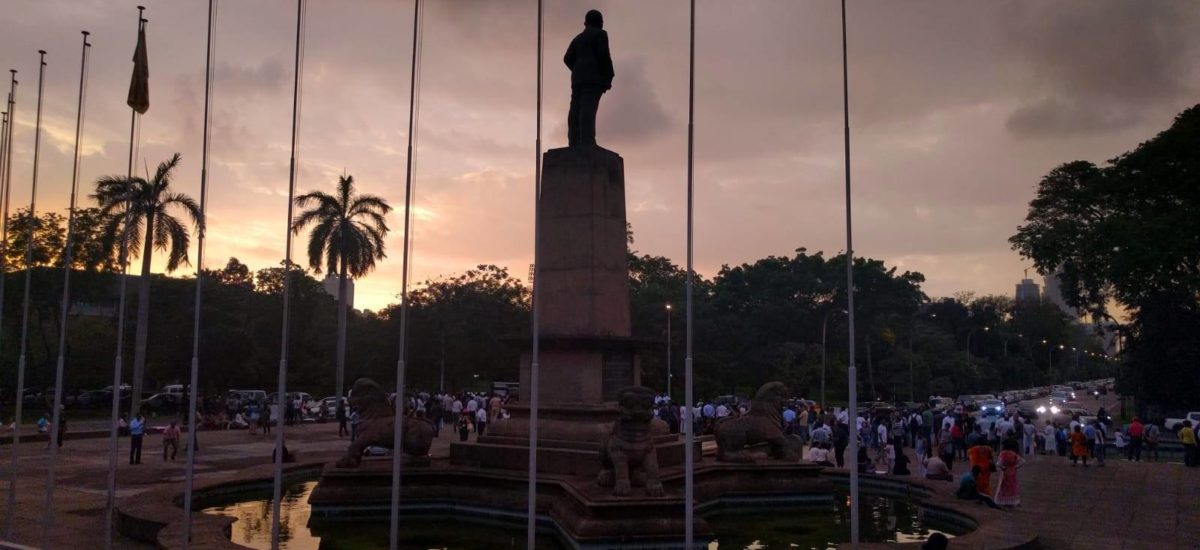Editor’s Note: The author is a former Secretary to the Prime Minister, Government of Sri Lanka, now retired after a career spanning 37 years in Sri Lanka’s Administrative Service.
The recent politico-constitutional crisis marks a resurgence of interest in interpretation of imperfect constitutional provisions. Translating this interest into a meaningful dialogue may not be an easy task as Sri Lanka’s Constitution is riddled with indeterminate text. These imperfections result in a dysfunctional political system, a signal that it is time to rewrite the Constitution. Despite the imperfections, our respect for the Constitution compels us to examine the proper meaning to be gleaned from the text. Let us address two questions.
First let us address the question, “Is the purported dissolution of Parliament by the President unconstitutional?” We are faced with two competing provisions.
- Article 33 states: “It shall be the duty of the President to … summon, prorogue and dissolve Parliament” [Article 33 (2) (c)]
- Article 70 (1) states: “ The President may by Proclamation, summon, prorogue and dissolve Parliament: Provided that the President shall not dissolve Parliament until the expiration of a period of not less than four years and six months from the date appointed for its first meeting, unless Parliament requests the President to do so by a resolution passed by not less than two-thirds of the whole number of Members (including those not present) voting in its favour”
To resolve the apparent clash between the two provisions in article 33 (2) (c) and article 70 (1), can we turn to any accepted norms of interpretation of constitutional provisions? There are several maxims for our guidance.
One maxim says that the express mention of one thing excludes all others (expressio unius est exclusio alterius). Another maxim states that general things do not derogate from special things (generalia specialibus non derogant). One more maxim says that special words derogate from general ones (specialia generalibus derogant).
A maxim of universal law further relevant to the issue states: Later laws abrogate prior contrary laws (leges posteriores priores contrarias abrogant). Where words are manifestly inconsistent and clearly repugnant in two laws, the later law prevails. Article 70 (1) introduced more determinate clauses that override the earlier provision in article 33 (2) (c). Where the subsequent provisions later in a document are contrary, the earlier must be considered as repealed.
In the light of the above, can the constitutional amendment to article 70 (1) be unconstitutional vis-à-vis the broad principles set forth in article 33? The question arises whether the more determinate and specific clauses override the general provision. The answer is yes; when the language of a clause makes plain a specific concept – the process of interpretation is straightforward. A particular provision is the building block of the general provision. Further, the text must be understood as a whole: various provisions qualify, modify, or shed light on the proper understanding and application of other parts of the text. In constitutional interpretation, we must honour the aspirational principles which provide the best justification or which answer better the principles to which we as a people subscribe. Clearly, the current dissolution of Parliament is unconstitutional.
Secondly, let us address the question whether the President can unilaterally remove the Prime Minister. If a Prime Minister does not serve the political interests of the President, can the President remove the PM for political reasons? After the 19th Amendment, the Prime Minister does not hold office at the pleasure of the President. Article 46 (2) clearly sets forth the PM’s tenure status. The PM continues to hold office throughout the period during which the cabinet of ministers continues to function unless the PM resigns or ceases to be an MP. Accordingly, the Nineteenth Amendment limits the President’s unrestrained powers of appointment and dismissal.
The powers, functions and duties of the Executive President, and his relation with the Prime Minister and Cabinet, have over time differed with the various amendments to the constitution since 1978. The President’s greatest power is his ability to choose the Prime Minister. However, after the 19th Amendment, the Parliament has the sole power to dismiss the government under article 48 (2), namely, in the following three instances:
- Where Parliament rejects the statement of government policy,
- Where Parliament rejects the Appropriation Bill, and
- Where Parliament passes a vote of no confidence
Therefore, the President is forced to name a Prime Minister who can command the support of a majority in the legislature. The President names but cannot dismiss the Prime Minister. Power to remove the PM is vested exclusively in the legislature. Also, the President names and dismisses the other ministers with the agreement of the Prime Minister. That in essence is the constitutional position.
It is time for a new era of principled constitutionalism.
Editor’s Note: Read more content on the coup here.

